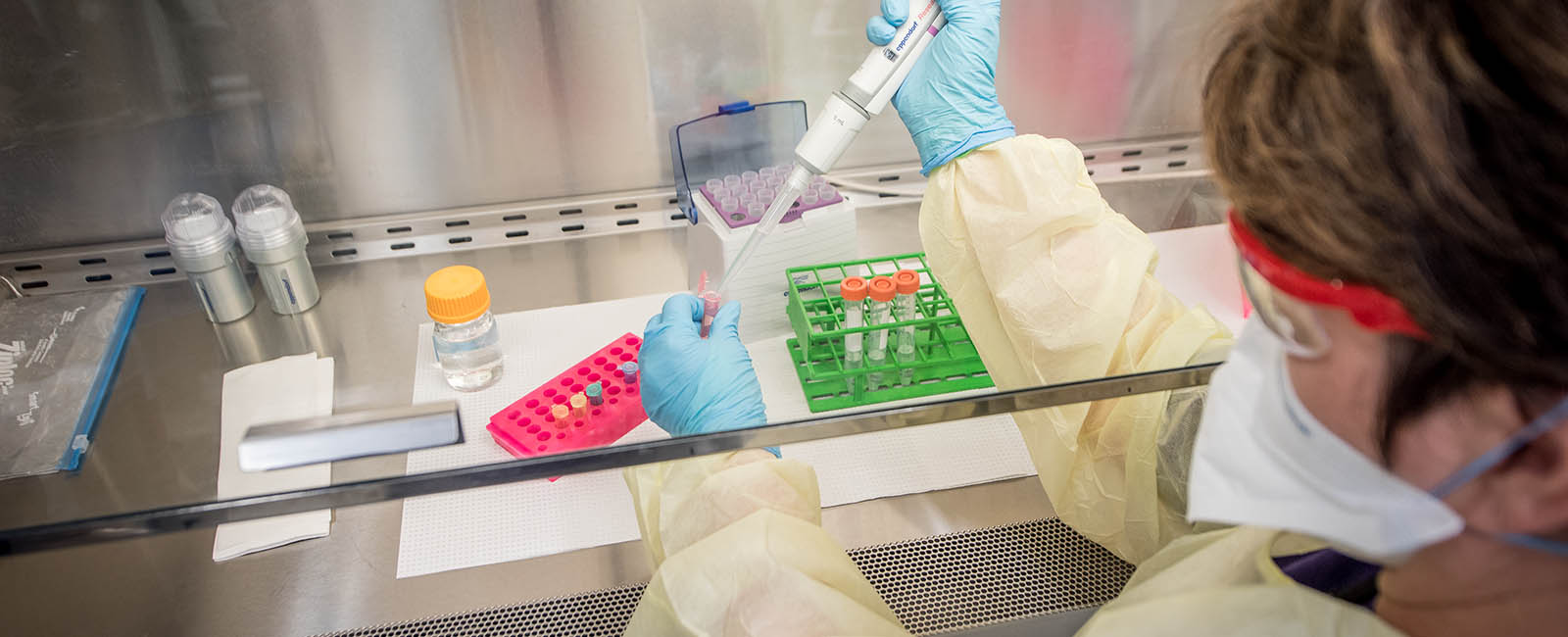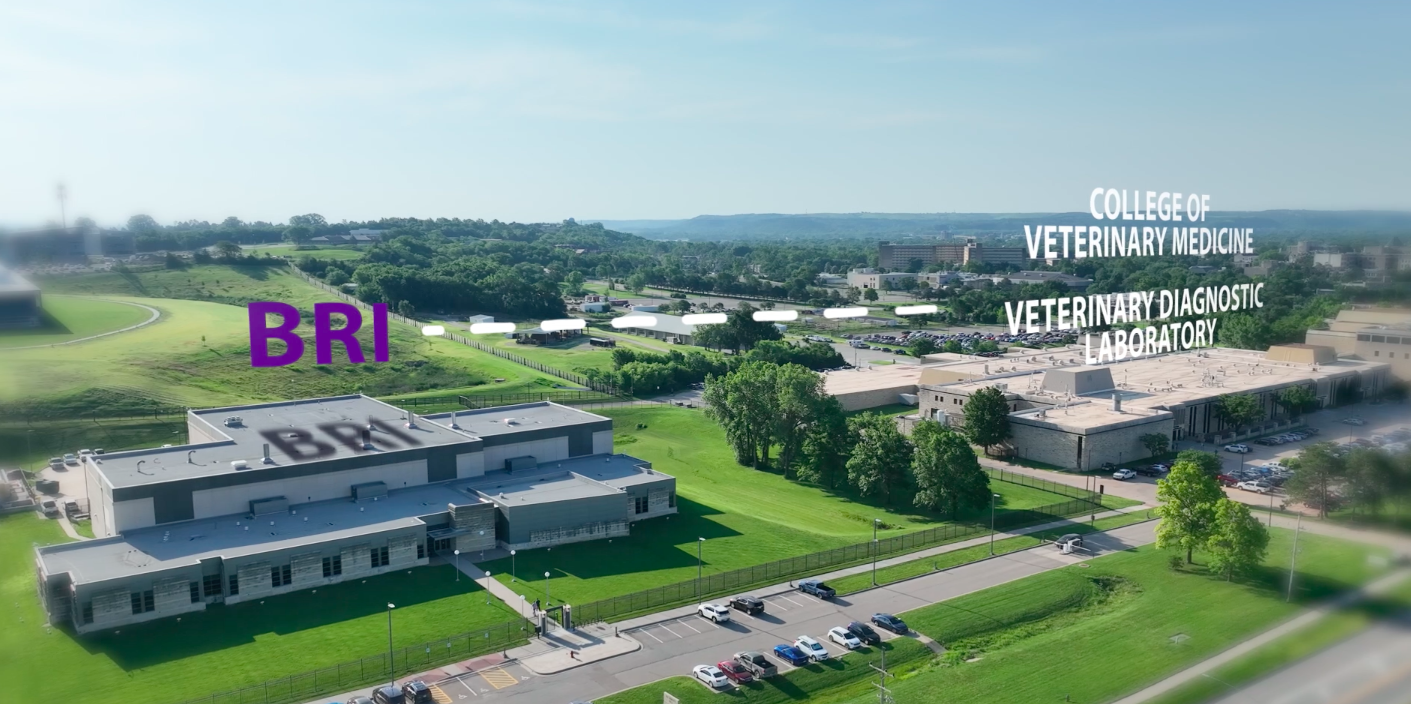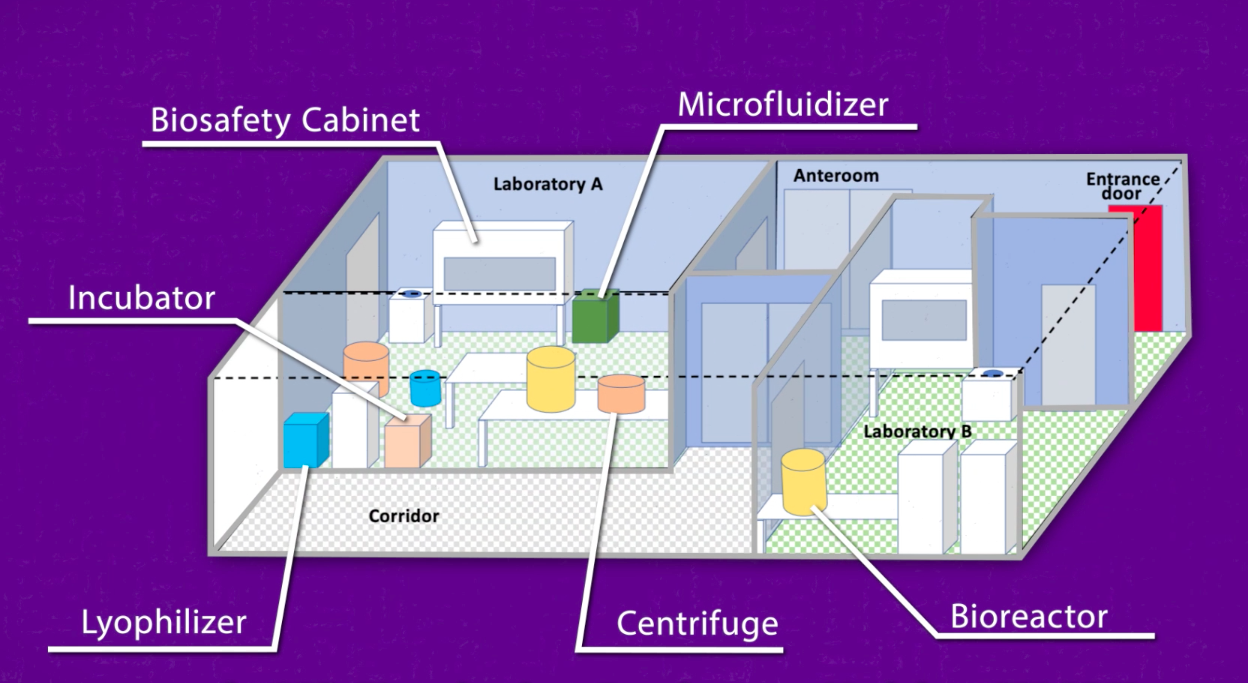
Biologics Development Module
The Biosecurity Research Institute Biologics Development Module facilitates corporate partners to advance development of diagnostic, prophylactic and therapeutic countermeasures needed to combat infectious animal diseases as well as zoonotic and foreign animal diseases that threaten animal agriculture, food supply and human health.
Partnership with the Biologics Development Module
The Biologics Development Module, or BRI-BDM, is a BSL-2 pilot manufacturing lab that is located within the BRI. Prototype products are easily transitioned from the BDM lab for testing in vitro or in animal models in the BRI's BSL-3 and ABSL-3Ag labs.
Examples of prototype countermeasures well suited for the BRI-BDM include modified live virus, live-vectored and recombinant protein-based subunit vaccine candidates for management of zoonotic and foreign animal diseases. Industry partners can manufacture their internally developed prototype products within the BRI-BDM or collaborate with K-State researchers on the development of their innovative discoveries.
Location and features
Our partners also benefit from close proximity to the K-State College of Veterinary Medicine and the Veterinary Diagnostic Laboratory, as well as many other containment and non-containment large animal facilities on campus.
The BRI boasts exceptional large animal research containment capabilities that are available to industry.
In the BRI-BDM, teams can move seamlessly all the way from proof of concept studies to scalable production. The facility adheres to all Good Laboratory and Good Manufacturing practices.
Working with researchers
Partners work side by side with world-renowned K-State faculty who have developed potential vaccines and therapeutics that have been licensed for commercial development. These highly experienced researchers work safely every day on select agents, emerging zoonotic and foreign animal diseases and pathogens with pandemic and bioweapons potential.
Contact
To learn more about partnership opportunities, contact Stephen Higgs, BRI director.
